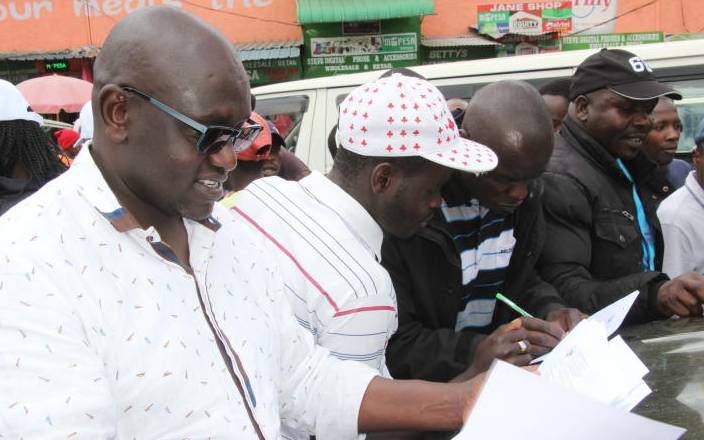×
The Standard e-Paper
Stay Informed, Even Offline

Third Way Alliance party leader Dr Ekuru Aukot (in glasses) collect signatures from members of public at the at Nakuru main bus terminus on October 25, 2018 during his Punguza Mizigo referendum campaign initiative that propose to amend the constitution. [Kipsang Joseph/Standard]
The fate of a Bill that targets to invoke a referendum now rests with county assemblies after the electoral commission yesterday ruled that it had met the constitutional threshold of a million signatures.